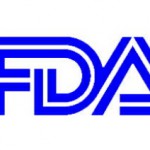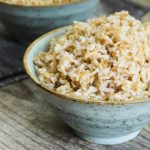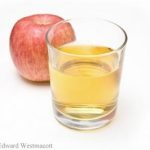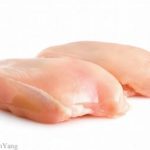The FDA has announced it has withdrawn approval of all applications for nitarsone (an arsenic-based drug) in animal feed as of December 31, 2015. There are now no FDA-approved, arsenic-based drugs for use in food producing animals. Last April, the FDA announced it received a letter of commitment from Zoetis Animal Health that the company will suspend sales of Histostat, the commercial name for nitarsone. This was the only arsenic-based animal drug used in food animals. It is used for the prevention of disease in turkeys and chickens. Studies have found that organic arsenic, the less toxic form of the chemical used in these drugs, can transform into inorganic arsenic, which is a known carcinogen. In 2011, an FDA study found that higher levels of inorganic arsenic were in chicken … [Read more...]
Documents Show Possible Collusion Between FDA and Pfizer
Food & Water Watch has released documents, including draft press releases and emails, that they say shows the FDA colluded with the pharmaceutical company Pfizer to minimize the results of a study that links inorganic arsenic, which is a carcinogen, to the U.S. food supply. Food & Water Watch obtained the documents through the Freedom of Information Act. Communications between the government and Pfizer began before a 2011 announcement to suspend sales of roxarsone, an arsenic-based drug used in poultry feed. A 2007 study suggested that roxarsone converts into the most dangerous form of arsenic in chickens. Elevated levels of inorganic arsenic were found in the livers of chickens given the drug compared to chickens that never got it. Continued approval of roxarsone violates the … [Read more...]
Consumer Reports on Arsenic in Rice
Consumer Reports has released new data and guidelines for consumers about arsenic in rice. That organization's 2012 report found measurable levels of the heavy metal in almost all of the products they tested. People who are allergic to wheat, celiac patients, and those sensitive to gluten eat more rice and rice products. Arsenic is in two forms: inorganic and organic. Inorganic is more toxic and is classified as a carcinogen. It is naturally occurring, but humans put more arsenic into the environment through pesticides and poultry fertilizer. Chickens are fed organic arsenic to promote weight gain and growth on less food. The FDA stopped approval of most food animal drugs containing arsenic last year, but not all. The heavy metal stays in the soil for decades. And when animals eat … [Read more...]
In a Twist, China Bans U.S. Shellfish
We're used to hearing about how food from China is banned from entering the U.S., or that consumer and food safety groups oppose measures to bring food from that country here. But now China has turned the tables by banning all imports of West coast shellfish from its borders. The issue is paralytic shellfish poisoning toxins and arsenic found in geoduck clams harvested in Renton, Washington and Ketchikan in Alaska. No shellfish harvested on the entire West coast will be exported to China for the foreseeable future. The ban applies to clams, oysters, geoducks, and all bivalve shellfish harvested off Washington, Oregon, Alaska, and northern California. The health departments of those states routinely test for PSP and arsenic, as well as other parasites and bacteria. Officials with the … [Read more...]
Center for Food Safety Urges Limits to Arsenic Content in Food
Did you know that there is no limit on the arsenic level in the foods you eat? The EPA regulates arsenic in drinking water, but the FDA and USDA have no such standards. The FDA is studying the impact of arsenic in rice products and withdrew approval of arsenicals in animal feed. And the FDA is proposing guidance, which is not enforceable and has no law behind it, for arsenic content in apple juice. The Center for Food Safety (CFS) is calling for "cumulative exposure" limits for apple juice and other staple foods. They say that "although individual foods containing arsenic may be safe to eat in moderation, they are often consumed in combination, thereby presenting a risk of 'cumulative arsenic exposure' that could reach dangerous levels." They sent a letter to the FDA on November 12, … [Read more...]
FDA Withdraws Approval of Arsenic in Animal Feed
>On September 30, 2013, the Food and Drug Administration responded to a Center for Food Safety petition, calling for the immediate withdrawal of the "vast majority of arsenic-containing compounds used as feed additives for chicken, turkeys and hogs." A lawsuit filed by that agency, along with the Institute for Agriculture and Trade Policy, Food & Water Watch, Center for Environmental Health, and Health Care Without Harm, among others, compelled the response. FDA is going to withdraw three of the four arsenicals and all drug approvals related to those compounds. That means of the 101 drug approvals for arsenic-based products, 98 will be withdrawn. Paige Tomaselli, senior attorney with the Center for Food Safety, said in a statement, "the withdrawal of these harmful feed additives … [Read more...]
Consumers Union Advice About Arsenic in Rice
Reports about arsenic levels in rice are troubling to many people, especially families with young children and those who have celiac disease or an intolerance to gluten. If you're wondering how to limit your exposure, Consumers Union, the policy and action division of Consumer Reports, has specific recommendations. These recommendations first appeared in a November 2012 Consumer Reports article about arsenic levels in rice and rice products commonly found on grocery store shelves. The report prompted calls to action by members of Congress and investigation by the U.S. Food and Drug Administration (FDA) which last week released data about its probe. The agency concluded that these products do not pose a short-term health risk, that a study of exposure over the long term is necessary, and … [Read more...]
FDA: Arsenic In Rice Doesn’t Pose Short-Term Health Issue
Arsenic levels in rice and rice products do not pose a short-term health risk, the U.S. Food and Drug Administration (FDA) has concluded after studying thousands of samples. But the health effects of long-term exposure to the low amounts of arsenic in these products is unknown, and that will be the agency's next area of focus. There are two types of arsenic, organic and inorganic. Both occur naturally in the environment and are found in water, air, soil and foods. According to the Centers for Disease Control and Prevention (CDC), organic arsenic is found mainly in fish and shellfish. Inorganic arsenic, the more toxic type, is normally found in soil, sediment, and groundwater. From these sources, inorganic arsenic can make its way on to foods including rice. The FDA analyzed more … [Read more...]
FDA Proposes Arsenic Limit for Apple Juice, Seeks Comment
Eighteen months after a Consumer Reports story on inorganic arsenic in apple juice triggered a wave of concern from consumers and demands for action from lawmakers, the U.S. Food and Drug Administration has proposed a limit on the acceptable level of inorganic arsenic, a carcinogen, in apple juice. The FDA has set an “action level” of 10 parts per billion (ppb), the same level set by the U.S. Environmental Protection Agency (EPA) for arsenic in drinking water. The threshold, which is based on lifetime exposure, is meant to provide guidance for the industry, and a trigger level for enforcement action.The limit is based on the FDA’s 2012 analysis of 94 samples of arsenic in apple juice that found 95 percent of samples contained less than10 ppb total arsenic and 100 percent of samples … [Read more...]
Johns Hopkins Center for a Livable Future Studies Arsenic in Chicken
A study published in Environmental Health Perspectives by the Johns Hopkins Center for a Livable Future (CLF) last week found that feeding arsenicals to chicken increases the concentrations of inorganic arsenic, a known carcinogen, in chicken breast meat. This is the first study that shows concentrations of specific forms of arsenic in retail chicken meat and the first to compare those concentrations according to whether the poultry was raised with arsenical drugs. Researchers bought conventional, antibiotic-free, and USDA organic chicken samples from 10 U.S. cities between December 2010 and June 2011, when an arsenic-based drug manufactured by Pfizer, called roxarsone, was available to poultry companies. Scientists not only found inorganic arsenic in the meat; they also found residual … [Read more...]











